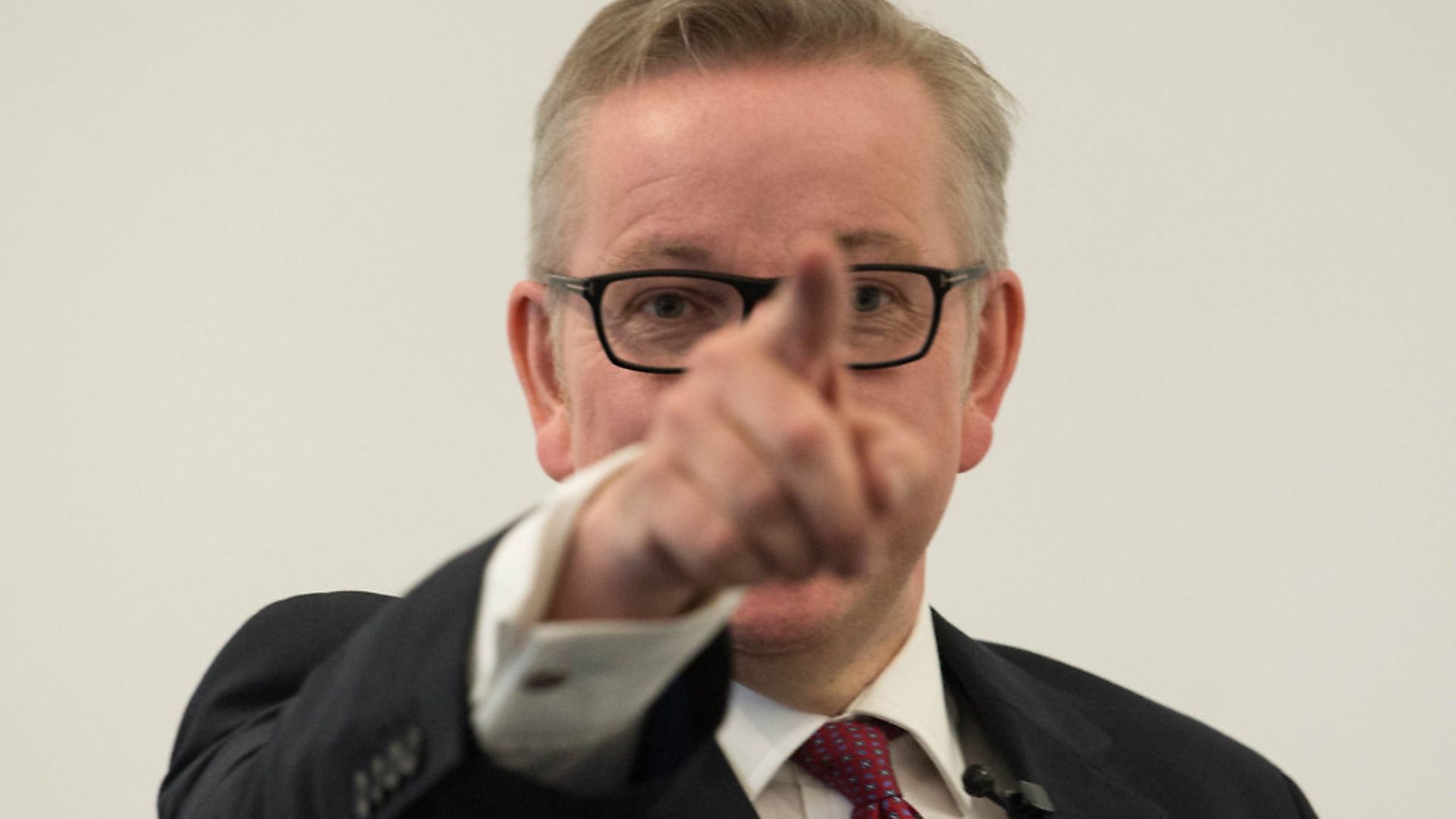
Brexiteer Michael Gove has broken rank to issue a thinly-veiled threat to the Prime Minister.
Just a day after both wings of the Conservative Party praised Theresa May for getting Brexit talks over the line at the 11th hour, Gove has warned voters will be able to force changes to any withdrawal deal at the next election.
Tory Brexiteers could attempt to topple the Prime Minister by forcing a vote of no confidence but so far May’s deal has been well received.
Under the deal, Britain will pay a ‘divorce settlement’ of between £35 billion to £39 billion, allow the European Court of Justice (ECJ) a legal role for eight years after withdrawal, and ensure there is no hard border between Northern Ireland and the Republic.
Writing in the Daily Telegraph, Gove said: ‘The British people will be in control. If the British people dislike the agreement that we have negotiated with the EU, the agreement will allow a future government to diverge.’
The Environment Secretary said that after a transition period, the UK would have ‘full freedom to diverge from EU law on the single market and customs union’.
The comments came as it emerged the Cabinet is set to have a Brexit showdown on what the UK’s ‘end state’ relationship with the EU should be at a meeting on December 19.
The gathering is expected to see prominent Leave campaigners such as Gove and Foreign Secretary Boris Johnson argue their Brexit version of withdrawal against the softer stance taken by Chancellor Philip Hammond and Home Secretary Amber Rudd.
Sources have told The New European that although there was widespread relief at the deal being struck some of the detail has alarmed Brexiteers. May’s supporters have rallied around the PM highlighting the lower-than-expected divorce bill as proof the deal is positive for the UK.
But proposals allowing the ECJ a role in overseeing EU citizens’ rights in Britain for eight years after Brexit have caused concern to some Tories, as well as a compromise on the Irish border issue which stated that if no trade deal is reached, the UK as a whole will maintain ‘full alignment’ with elements of the EU single market and customs union which support the economy of the island of Ireland and the Good Friday Agreement.








